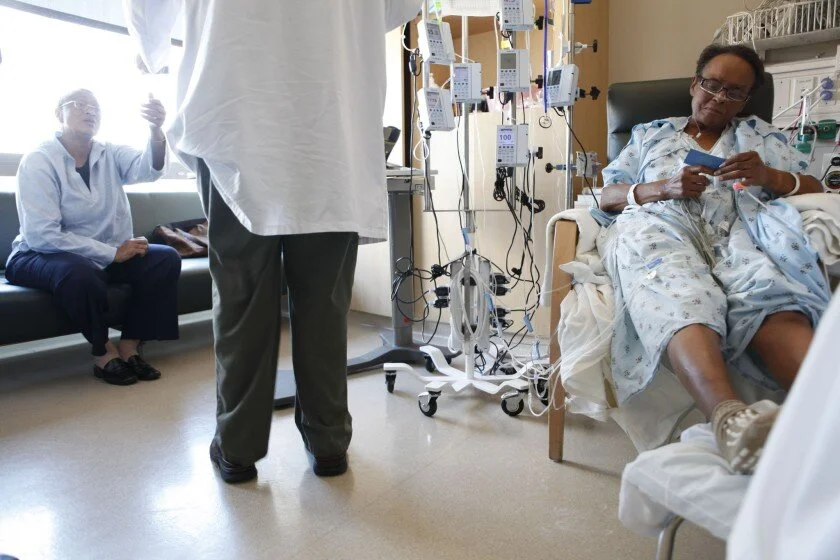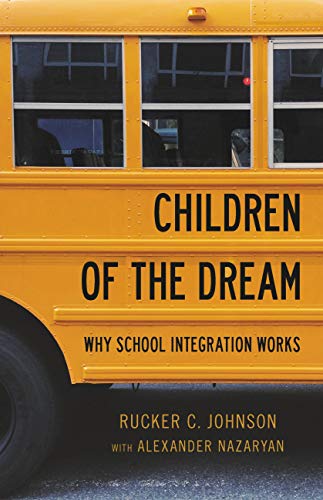Increasing the minimum wage and expanding a tax credit for low-wage workers may prevent more than 1,200 suicides each year, according to a new working paper by a team of UC Berkeley researchers including affiliate Michael Reich. Read VOX’s article on the study here.
Edward Miguel Talks Cash Transfers with KCBS Radio
Affiliate Ted Miguel speaks with KCBS Radio on his research about the positive ripple effects that cash transfers have on entire communities. Listen in!
The Costs and Benefits of Geoengineering
Solomon Hsiang spoke with Marketplace about the fascinating potential and possible consequences of geoengineering. Listen in!
A Computer Algorithm Fuels Racial Bias in the Healthcare System
A study by affiliate Ziad Obermeyer finds that an algorithm used by health insurers to make crucial care decisions for millions of people has significant racial bias when predicting the health risks of black patients. LA Times covers his research in this article.
The French Economist Who Helped Invent Elizabeth Warren’s Wealth Tax
The New Yorker writes a detailed profile on affiliate Gabriel Zucman, highlighting the story behind his influential wealth tax proposal and his beginnings as an economist, including his background in wealth inequality. Read the full article here.
How to Tax Our Way Back to Justice by Saez and Zucman
For the first time in a hundred years, the working class paid higher tax rates than billionaires. How can we achieve economic justice? Find out in Emmanuel Saez and Gabriel Zucman’s new opinion piece for The New York Times.
Scabs: The Social Suppression of Labour Supply by Supreet Kaur and Co-Authors
“Social norms help sustain wage floors with workers taking jobs at wage cuts in private, but rejecting them in public due to fear of sanctions,” writes Supreet Kaur, Emily Breza, and Nandita Krishnaswamy in a new VoxDev article. Read more!
Vox The Weeds Podcast Features Research by Kline and Walters
New Vox The Weeds podcast features research by affiliates Patrick Kline and Christopher Walters, who use audits to detect discrimination by employers. Listen in!
Is the Social Safety Net a Long-Term Investment? Large Scale Evidence From the Food Stamps Program
Read the latest in O-Lab's Research In Brief series: Is the social safety net a long term investment? Hilary Hoynes and Reed Walker find that find "access to food stamps in early childhood leads to significant improvements across a range of outcomes in adulthood." Read more.
Can the US Raise the Minimum Wage to $15 Without Hurting Jobs?
Anna Godoy and affiliate Michael Reich wrote an article for CNN Business about their research on the effects of minimum wages. They examined 51 minimum wage increases since 2004 in 45 states and found that “higher minimum wages do not have adverse effects on employment.” Read more!
Climate Winners and Losers
“Many people think it’s just the temperature, but actually temperature affects everything,” says affiliate Solomon Hsiang in a new ClimateOne podcast about the winners and losers of climate change. Listen in.
The Effects of Pay Inequality
New VoxDev Talks with O-Lab affiliate Supreet Kaur on how pay inequality affects attendance, productivity and the social fabric of manufacturing workers in India, thus revealing impacts on firm productivity. Listen now!
The Wealth Detective Who Finds the Hidden Money of the Super Rich
Gabriel Zucman, “America’s top wealth detective,” probes the secrets of the super rich using simple, voluminous spreadsheets compiling the tax tables, macroeconomic datasets, and cross-border-flow calculations of central banks. He does it on his own, only rarely outsourcing to graduate students. “You can conduct this detective work only if you do it to a large extent yourself,” he says. “The wealth is not visible in plain sight—it’s visible in the data.” Read the full article HERE.
Ted Miguel on Randomized Controlled Trials in the Long Run
Randomized controlled trials (RCTs) have revolutionized development policy. But do the interventions that work in the short run have a benefit 10 or 20 years later? O-Lab co-director Ted Miguel spoke to VoxEU's Center for Economic Policy Research about measuring long-run impacts for RCTs.
Berkeley Talks: Professor Rucker Johnson on why school integration works
Rucker Johnson’s book “Children of the Dream: Why School Integration Works” has been released and is now available for purchase. The book reveals that school integration efforts in the United States in the 1970s and 1980s were overwhelmingly successful, and our retreat from them has had dire effects on our society. Listen to Professor Johnson speak about the book on Berkeley News.
A Roadmap to Reducing Child Poverty
A new report from the National Academies of Sciences, Engineering, and Medicine, which O-Lab Co-Director Hilary Hoynes worked on, provides evidence-based policy and program suggestions that could reduce child poverty by half. “The strengths and abilities children develop from infancy through adolescence are crucial for their physical, emotional, and cognitive growth, which in turn help them to achieve success in school and to become responsible, economically self-sufficient, and healthy adults.” Read more HERE.
Economics After Neoliberalism
The tools of economics are critical to developing a policy framework for what Gabriel Zucman, Dani Rodrik and Suresh Naidu call “inclusive prosperity.” While prosperity is the traditional concern of economists, the “inclusive” modifier demands both that economists consider the whole distribution of outcomes, not simply the average (the “middle class”), and that they consider human prosperity broadly, including non-pecuniary sources of well-being, from health to climate change to political rights. Read the full article HERE.
Congress Passes the Foundations for Evidence Based Policymaking Act of 2018
In January, the Foundations for Evidence Based Policymaking Act of 2018 was signed into law, taking key steps to strengthen the privacy protections of federal data and increase the availability of evidence to improve policymaking. The law implements half of the recommendations made by the Commission on Evidence-Based Policymaking, a bipartisan commission that released unanimous recommendations in 2017. “The law’s improvements to secure data access should drastically improve the ability of researchers to access federal data while maintaining data privacy,” says Hilary Hoynes, co-Director of the Opportunity Lab and former Commission on Evidence-Based Policymaking member. “When fully implemented, a secure, streamlined method to access federal data could transform the types of research we conduct and how quickly it can be turned around for use by policymakers.” Read more HERE.
Emmanuel Saez and Gabriel Zucman on Alexandria Ocasio-Cortez’s Tax Hike Idea
Alexandria Ocasio-Cortez’s tax hike idea has kick-started debate on progressive income taxation. As Saez and Zucman argue in their New York Times op-ed, her tax idea is not about soaking the rich but rather curtailing inequality and saving democracy. “An extreme concentration of wealth means an extreme concentration of economic and political power. Although many policies can help address it, progressive income taxation is the fairest and most potent of them all, because it restrains all exorbitant incomes equally.” Read the full article HERE.
What is the social cost of carbon? Marketplace talks with Sol Hsiang
"You know the old saying "an ounce of prevention is worth a pound of cure"? About a decade ago, the Obama administration tried applying that to the fight against climate change. Federal agencies were required to assess the future damages of carbon emissions as part of cost-benefit calculations — the kind they need to do before passing new regulations." Read the full article HERE.





















